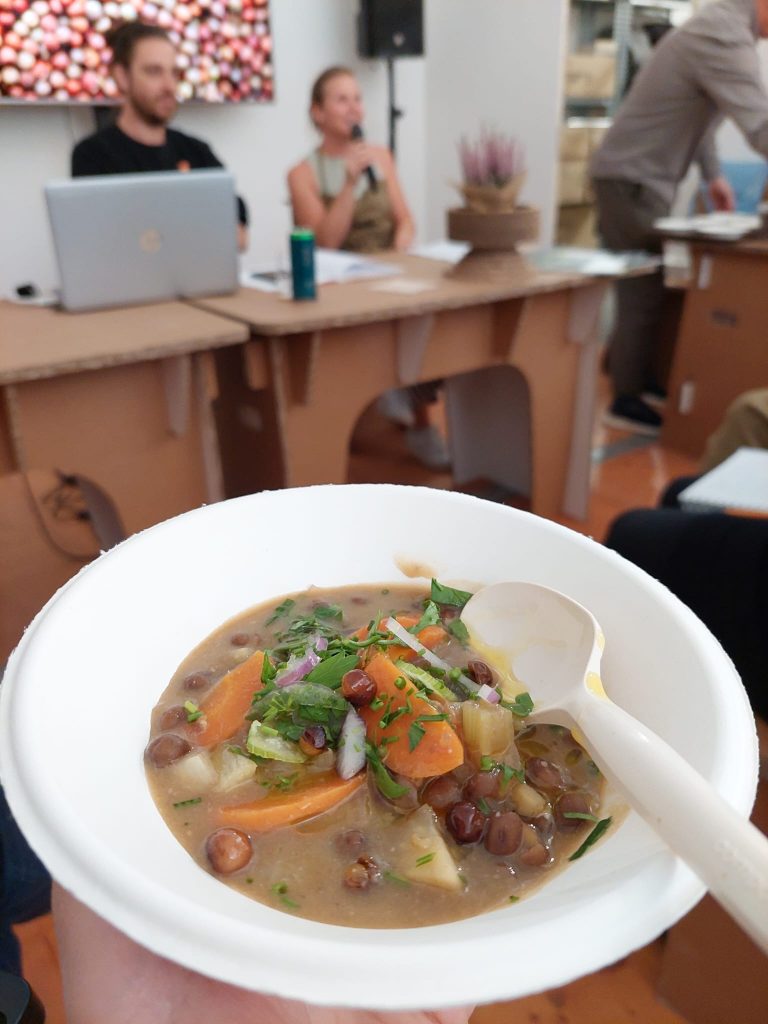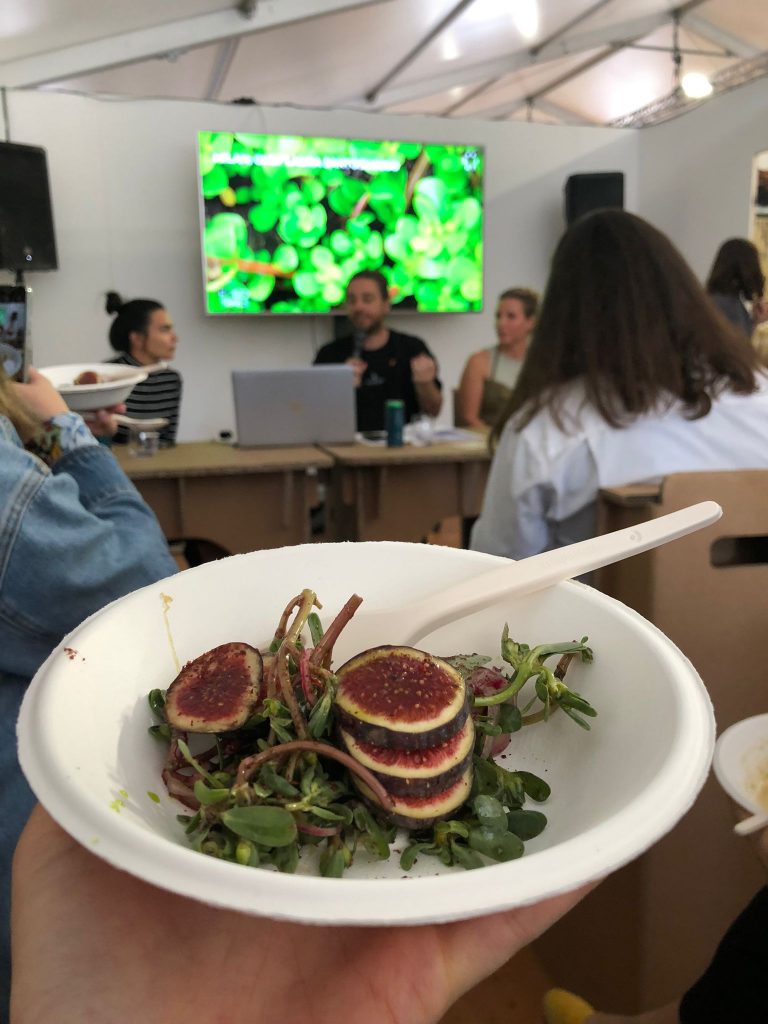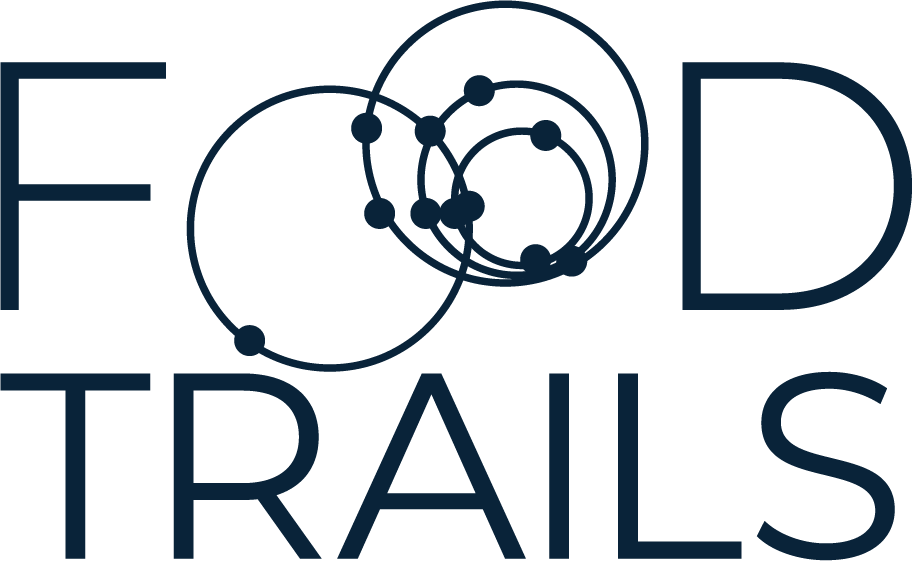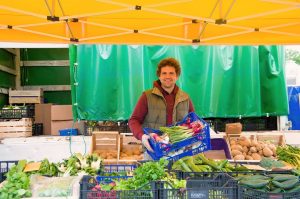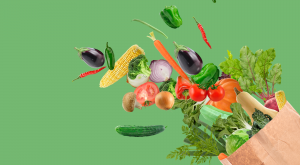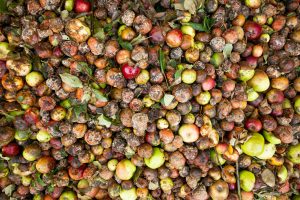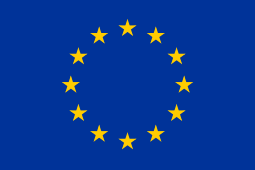On September 22-23, 2022, the Food Trails project participated in Terra Madre Salone del Gusto in Turin to showcase the vision of European cities on how to regenerate our Planet through food.
Regeneration was indeed the theme of the 14th edition of Terra Madre Salone del Gusto: the largest international event dedicated to good, clean, fair food and food policies promoted by Food Trails’ partner Slow Food, together with the City of Turin and the Piedmont Region. A live, open-air event that took place in a striking and inspiring location: the former industrial area of Parco Dora (#TerraMadre2022, 2022.terramadresalonedelgusto.com).
Through an exhibition and an agenda of events, the Food Trails project brought to Terra Madre 2022 the experience of “EuFood Cities,” the European cities that have decided to establish a food policy to achieve key goals such as reducing food waste, promoting sustainable diets, and reconnecting and integrating the urban context with the surrounding countryside.
A real regeneration must start with the transformation of the urban food system, and a key role is played by cities and their policy makers, who can establish food policies to cope with future scenarios.
Index
- Conference – Urban Food Policies for cities regeneration
- Exhibition – #EuFoodCities in TerraMadre 2022
- Food Talk – Food environments
- Food Talk – Shaping food culture in growing cities
- Food Talk – Tackling sustainable menus in schools through protein transition
- Food Talk – The Milan Urban Food Policy Pact
- Knowledge-sharing workshop of the “Food 2030 project family”
- Debate & tasting – A tasty food revolution. The planetary health diet
Conference Urban Food Policies for cities regeneration
In the conference introduction, representatives discussed the importance of working together and creating connections to ensure resilience, sustainability and quality in urban food systems.
“Turin was the first Italian city to put the right to food in its statute and not just food, but quality food, sufficient, nutritious, healthy and culturally and religiously acceptable”, reminded Michela Favaro, the deputy mayor of Turin.
The Milan’s deputy mayor, Anna Scavuzzo, emphasized the importance of an integrated approach and of alliances, “an approach is either integrated or it’s not an approach, it’s just an attempt,” as exemplified by Food Trails and the Milan Urban Food Policy Pact.
In the second panel, strategies and milestones to manage food policies and foster innovation at urban level were discussed through the perspective of foundations, researchers and city network.
According to Corinna Hawkes, professor and director for the Center for Food Policy at City, University of London there are three elements that cities should be focusing on: public procurement, for example in schools and hospitals, urban food markets and zero food waste, “If every city could implement these three things, it would be transformative”, she said. It would mean “healthy food in schools through public procurement, making sure food markets are full of healthy, wholesome foods and supporting producers and reducing food waste, which means addressing the environment, food insecurity and climate change”.
What can finance do for the food systems transformation? “Sustainable finance creates the conditions for implementing actions, developing instruments, influencing market demand, and favour approaches such as return investments”, explained Joseph Robertson, EAT Senior Advisor, expert on Sustainable Finance.
Andrea Magarini, Director of Food Policy Department of the City of Milan and Chair of the Eurocities Working Group Food, explained the type of work being done within the Food Trails Project in Europe and within the MUFPP worldwide “We help cities with fragmented projects dedicated to food to come up with structured strategies. Then we help replicate efforts and knowledge, so that cities can face future challenges together, not alone.” He also presented the regionalisation process within the MUFPP network “Europe is the region with the most advanced experience; Europe and Africa are the most active, but the Asia Pacific is also emerging, starting to adopt a very innovative approach to food actions”. Being part of city networks means that cities are not alone in facing future challenges, there is a movement of interest to do so.
To sum up, with the words of Nevin Cohen from CUNY University: “there is no wrong way of creating a food policy. The only wrong food policy is to not have it at all ”. Nevin Cohen has been the moderator of the third and final panel of the Food Trails conference focused on cities’ experience on transforming the food environment.
School canteens are keys to a real change in the food environment. This approach was exemplified by the experience of the Food Trails’ partner city, Grenoble-Alpes Métropole. “We don’t have jurisdiction over food”, stated Christine Oriol, consultant in agricultural development in Grenoble Metropole. “But we can work on energy supply, water supply, waste, social cohesion, finance, and all these departments now have programs targeting food policy. So, we do have an integrated food policy.”
For the Belgian city of Ostend a key driver of change was an agricultural park in the city. “It’s only 35 hectares, but it’s impressive to see how many initiatives have started from this food park: a CSA, a farm shop, a farmers market, educational activities, working with schools, and co-housing” said Kathy Belpaeme, the director of the food department. The Food Shift project was determinant in helping the city develop a coherent and integrated food strategy and only then the city realised how crucial such a strategy was to structure and give coherence to all that was happening.
Public participation is also key to shifting food policies: “the best food policy is one that comes from citizens” noted Elisabetta Luzzi, of Risorse per Roma, a municipal agency of the City of Rome. “A Living Lab with 400 people from different organizations, representing more than 5,000 individuals, has been meeting since February, producing regulations for the city’s Food Council, which will be made a law by the end of the year.”
Food Trails Exhibition
The exhibition aimed to showcase the European cities, engaged and connected to create pilot projects, living labs, initiatives and practices, that could inspire new cities in the building of integrated food policies.
Two maps presented the geographical distribution of projects addressing the urban food system transformation.
At the European level, five Horizon2020 consortia stand out, aiming to innovate local food systems, involving 52 cities and investing EUR 48 million by 2024. The projects are FoodShift2030, FoodE, FUSILLI, Cities2030 and together they work under the label “FOOD 2030 project family”. Interactions among these projects has great potential for impact: it will foster and facilitate knowledge exchange among the stakeholders engaged in shaping sustainable and future-proof urban food systems and increases the exploitation of resources invested by European citizens.
At international level, another map showed the more than 240 signatory cities of the Milan Urban Food Policy Pact: the global commitment of mayors from around the world that considers food as an entry point for the sustainable development of growing cities. The map visually summarised the countries and the regional distribution of the signatory cities highlighting the thriving community that emerged, and it showcased the great work that had been done since 2015: 7 global forums, 18 regional forums, 621 food practices gathered around the 6 categories of the Milan Pact.
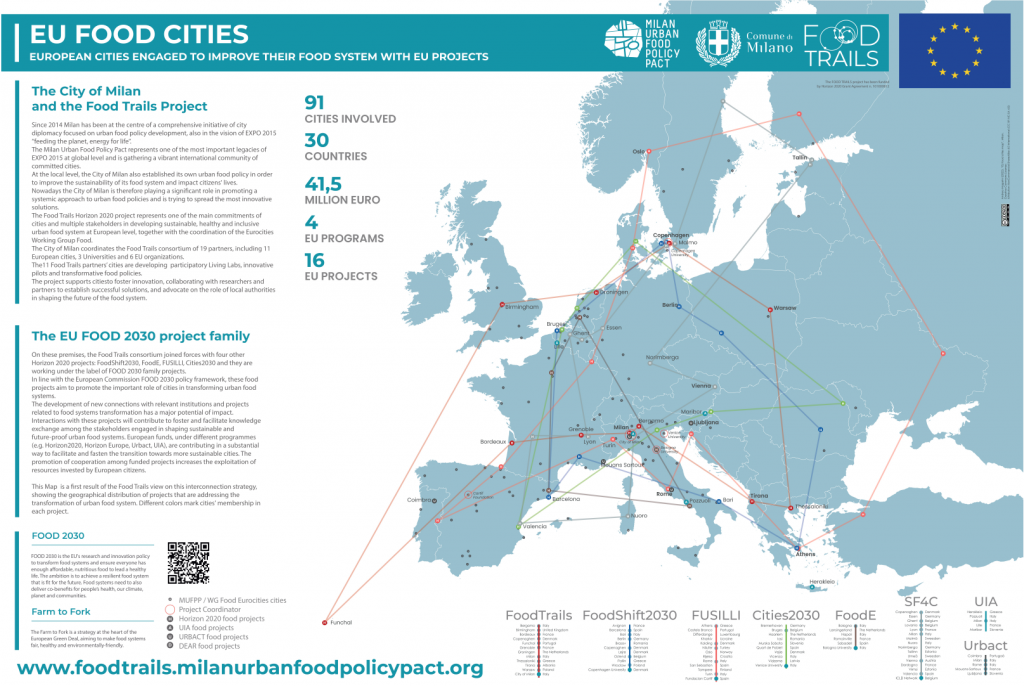
Food environments - Food Talk by Nikolai Pushkarev (European Public Health Alliance)
What are food environments and why are they important?
“Food environments are the contexts in which people interact with food systems, and there are four types of food environments” explained Nikolai Pushkarev of EPHA. “The first context relates to the supply chain: the access points to food, such as supermarkets, wholesale shops, restaurants, digital apps; wherever people buy food. The second is the built environment, the one that mediates our access to food entry points; let’s think about shops: are they fast food chains or farmers’ markets?. The third is related to the personal characteristics that people bring to the food system, and includes income, education, attitudes, values, skills… Finally, it is the political and economic context that shapes the food environment and the possibilities to change it“.
Food environments deeply effect the food we buy and eat. “If you are interested in the question – how do you change food patterns? -, the answer is: you have to change food environments. Changing food environments, making them enabling for healthy and sustainable diets, is about supporting people in achieving their aspiration to eat well for themselves and the planet.”
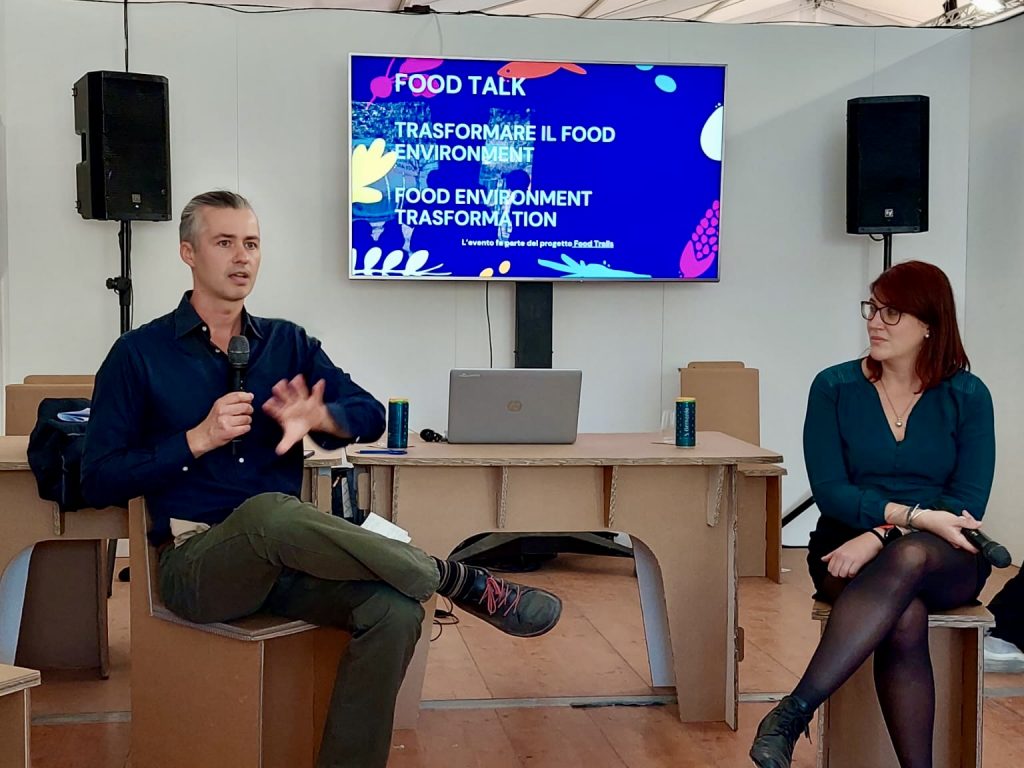
Shaping food culture in growing cities - Food Talk by Shaleen Meelu (Birmingham City Council)
How can we shape food culture in rapidly developing cities? Public Nutritionist, Shaleen Meelu shared the experience of Birmingham.
Not everyone is benefiting from economic growth, especially immigrant communities (40 % of the population). Birmingham is still experiencing the food insecurity that was exacerbated during the COVID-19 pandemic. Cheap, convenient, ultra-processed food is easily accessible everywhere, but it is difficult to order a local, organic, veg box. “Our food deserts are so called for their lack of nutritional diversity“, specify Shaleen Meelu.
As part of the Food Trails project, Birmingham is transforming a car park into an urban agriculture project aligned to a food waste collection project. “Projects like this allow us to think about and develop potential solutions to transform our cities food environments so that we can fulfill our mission of ensuring access to nutritious, ethical and sustainable food for all. Our ambition is to create a movement that will shape a future food culture in the city that protects both the health of our citizens and the planet“.
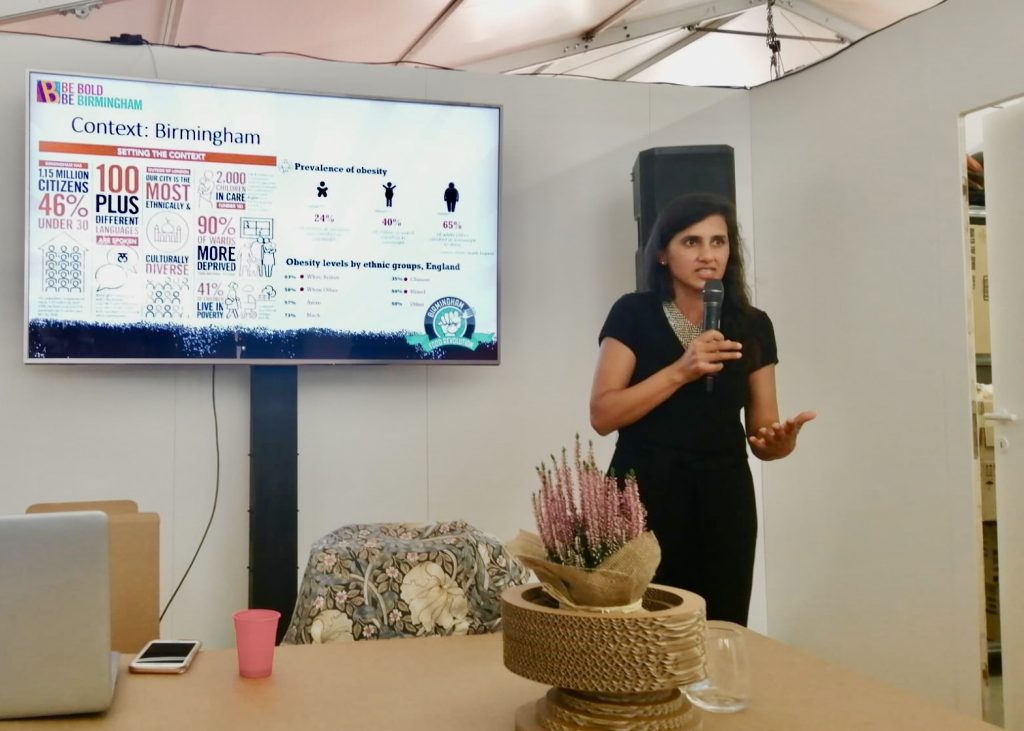
Tackling sustainable menus in schools through protein transition - Food Talk by Betina Bergmann Madsen (City of Copenhagen)
“The role of the procurement officer may be a lonely one, but it is crucial to achieve political goals and bring policies to life”, explained Betina Bergmann Madsen (City of Copenhagen). “It’s key to making sustainable tenders: the smallest changes included in procurement documents can be a decisive factor in helping the food chain start moving in a more sustainable direction and thus can create noticeable changes in primary production even in countries far away.”
Copenhagen seeks to achieve the SDGs through food procurement; statistics are collected to see if they are actually being achieved. Purchasing follows the new dietary guidelines, which established the need to reduce meat consumption by 2025. To this end, the city started a dialogue with kitchen and invested in the training of chefs and kitchen staff. They also calculated the ‘climate weight’ of foods, so that healthier and more sustainable ones score higher in their purchases.
In Food Trails, one of the task of Copenhagen is to describe why it is very important for a city to have a procurement policy.
“It is very important that procurement officers start working together”, said Betina Bergmann Madsen. “We have created a guideline for procurement officers and we are building a network at European level“.
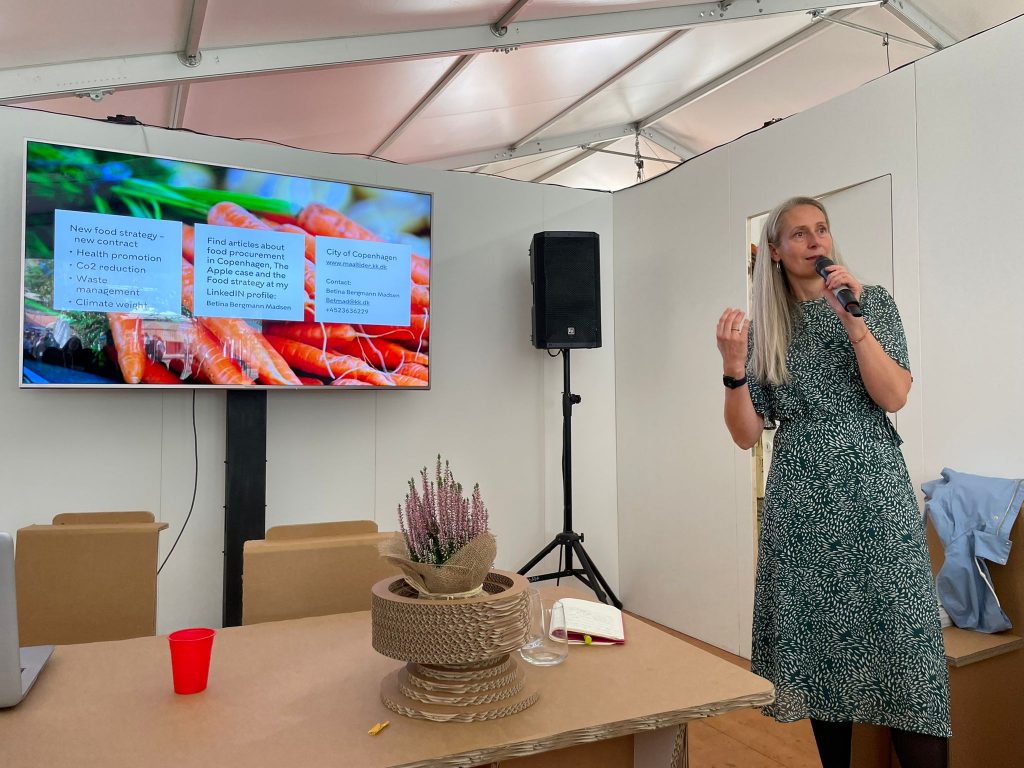
The Milan Urban Food Policy Pact - Food Talk by Filippo Gavazzeni (MUFPP Secretariat)
The Milan Urban Food Policy Pact is the main legacy of EXPO 2015. The Milan Pact is a global commitment of mayors from around the world that considers food as an entry point for the sustainable development of growing cities. Today the Pact gathers more than 240 cities, representing a total of 400 million inhabitants over the 6 MUFPP regions.
Over the years, it has consolidated an increasing number of partners ranging from international organisations, to universities, from research centres to NGOs. The Pact acts as driver, gathering the opportunities coming from its partners and linking them to its signatory cities.
Cities face similar challenges and seek appropriate solutions for their specific geographical and socio-economic contexts. Therefore, the Milan Pact promotes a regionalization process allowing signatory cities and regional stakeholders to meet and exchange knowledge regularly within their respective regions.
How cities are implementing MUFPP? Developing integrated approaches to municipal food system governance; strengthening political commitment towards food system transformation; including circularity, climate change and SDGS as relevant trends for food policy making; focusing on school canteens as crucial drivers to launch impactful food policy actions.
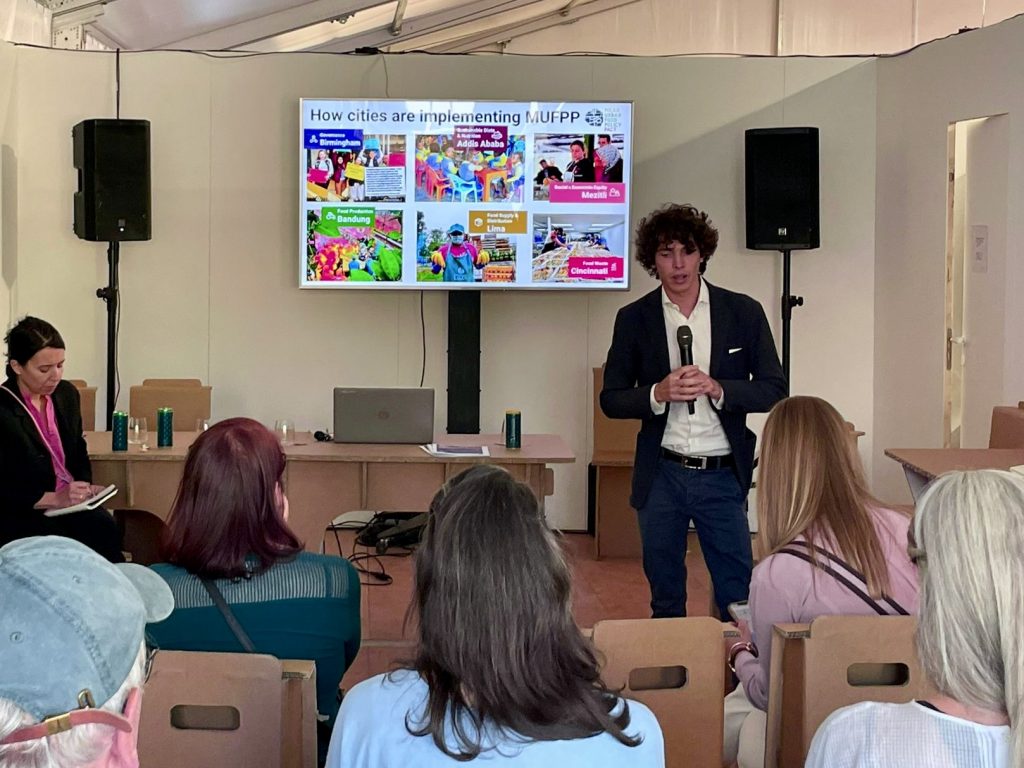
EU Food Cities in Terra Madre - Workhop of the FOOD 2030 project family
The objective of this workshop was to share the knowledge of participating cities on the transition to healthier and more sustainable local food systems. The dialogue was organised in two rounds that divided the participants into four groups consisting of a coordinator and representatives from different cities belonging to the 5 FOOD 2030 Horizon Projects.
Each city shared their main challenge and the innovative solutions they are implementing though living labs. The partecipating cities were:
- Birmingham (UK), Grenoble (FR), Bergamo (IT), Tirana (AL) for the Food Trails project;
- Pollica (IT) for the Cities 2030 project;
- Turin and Nilufer for the Fusilli project;
- Ostende, Wrocław (PO) Bari (IT) for the Food Shift project
The full report on this workshop will soon be available on this site.
A tasty food revolution: the planetary health diet - Debate and tasting hosted by EAT
Two chefs from two participating Food Trails cities, Milan and Copenhagen, cooked and presented dishes in line with the Planetary Health Diet recommendations at the 2022 Terra Madre Salone del Gusto.
Chef Tine Kardos from Copenhagen’s Meyers Madhus cooked Danish peas in lightly smoked broth with seasonal greens & herbs. Chef Laura Santosuosso from Milan prepared a Purslane salad with pickled onions, figs, fig leaf oil & Sicilian sumac.
These recipes demonstrate how the Planetary Health Diet can be part of our global tasty food revolution and illustrate the importance of taste when transitioning to healthier and more sustainable diets – both in traditional local dishes, but also in innovative ways of cooking.
